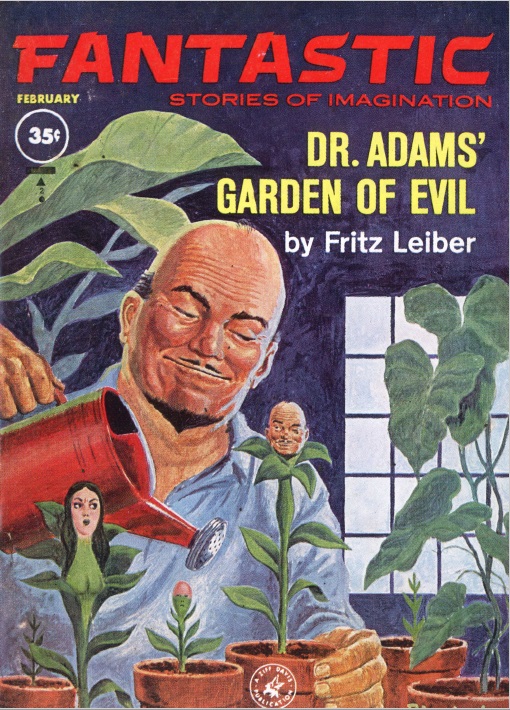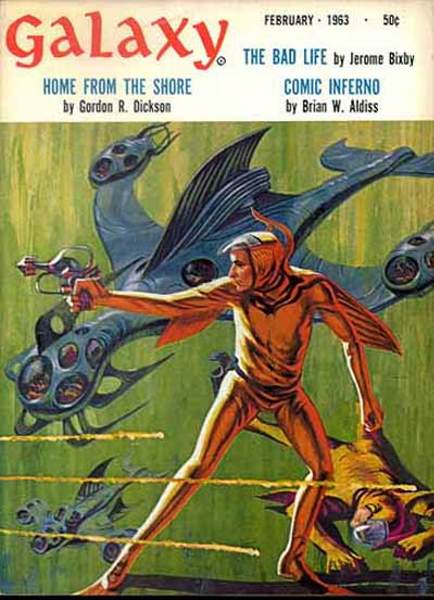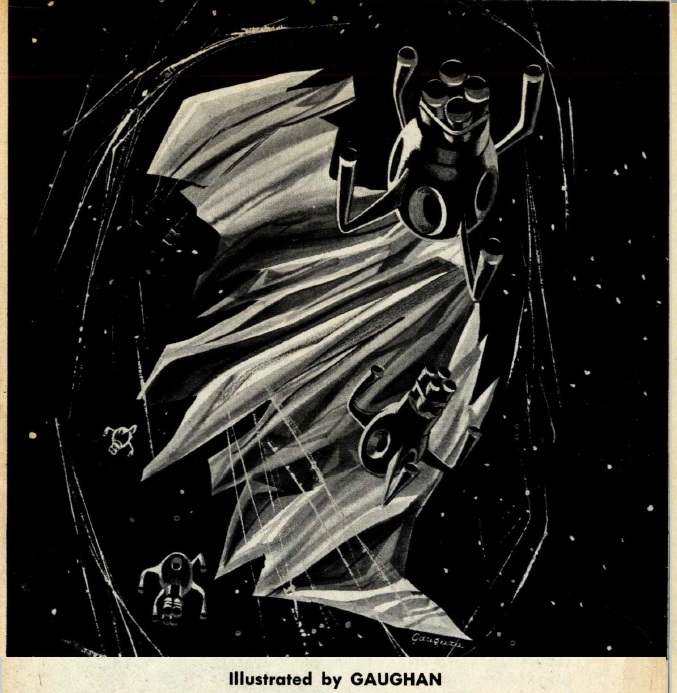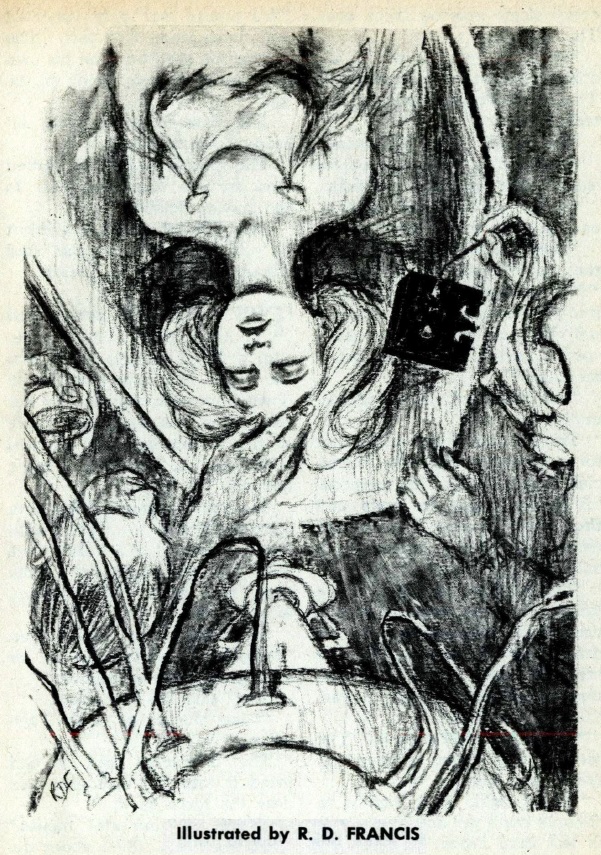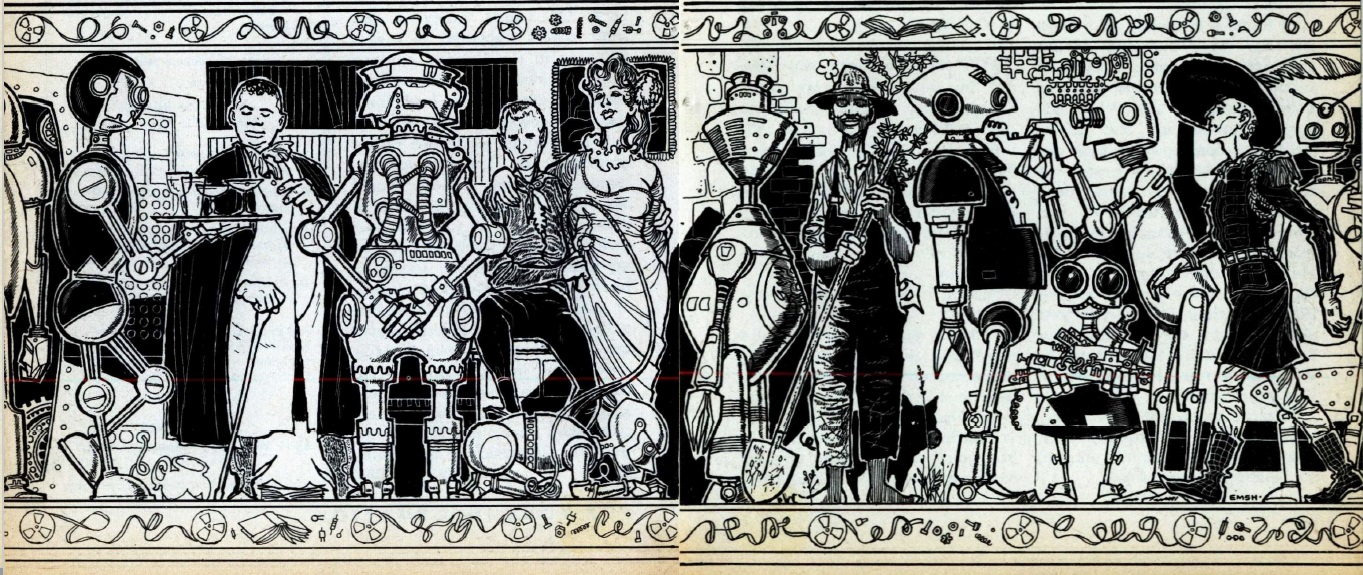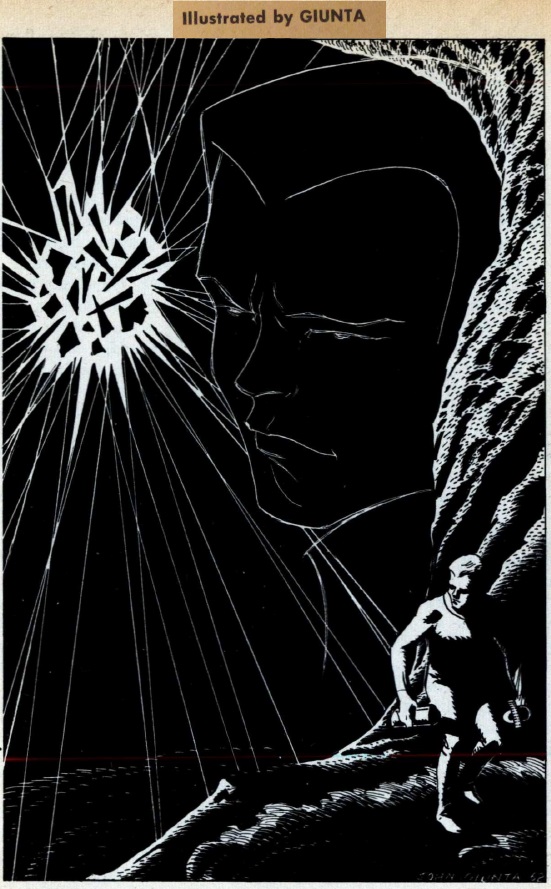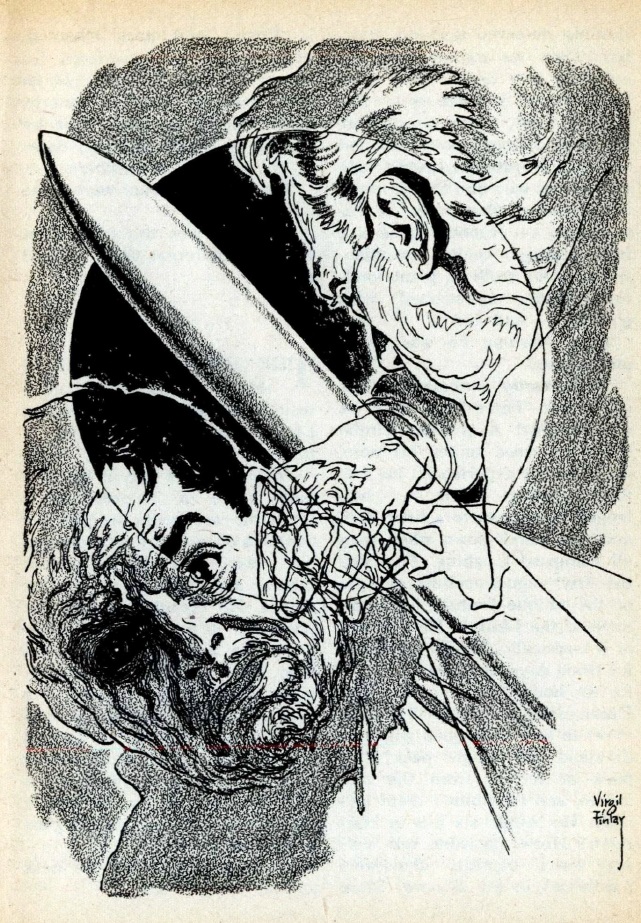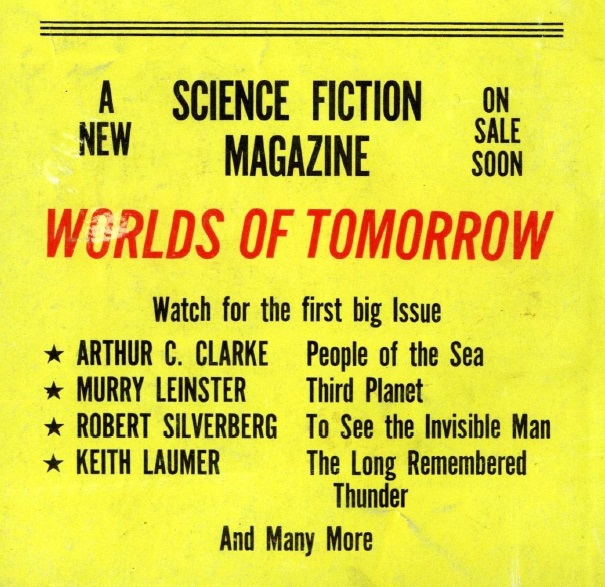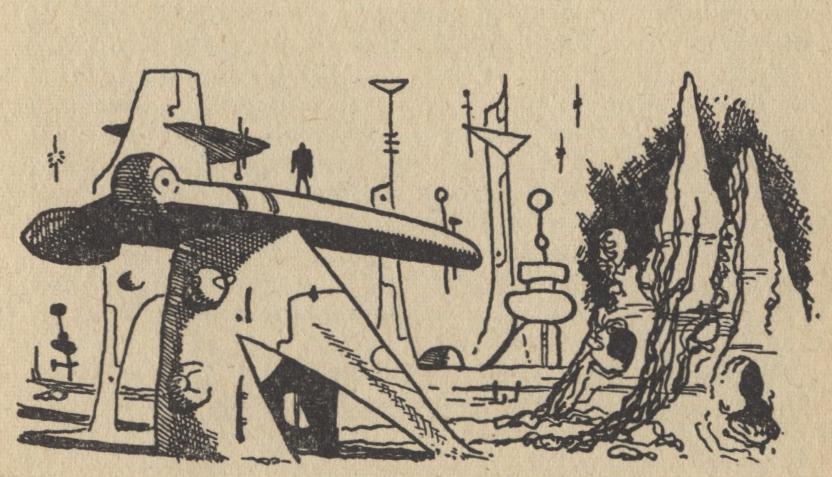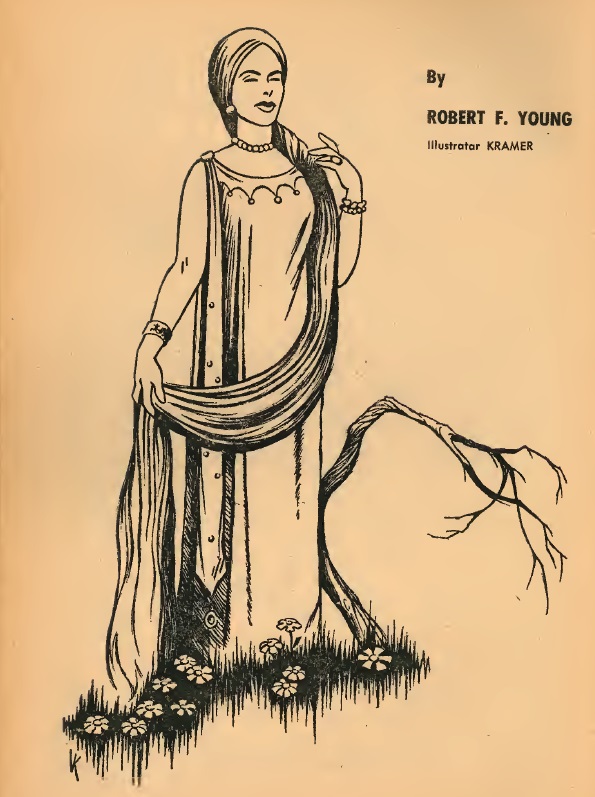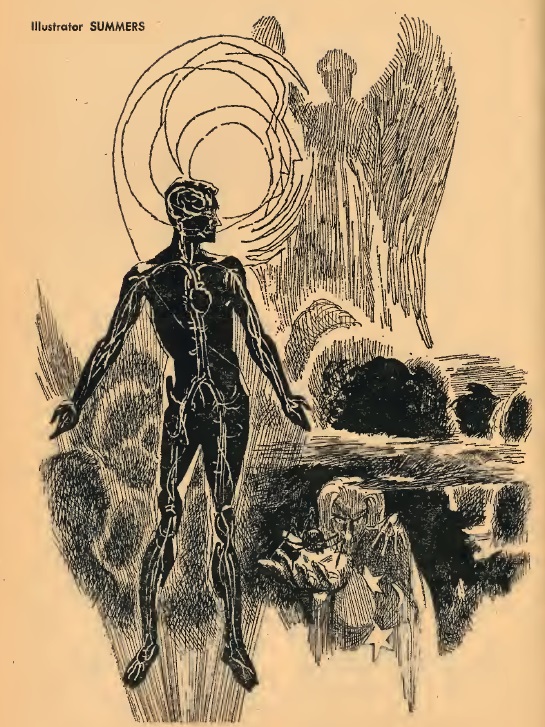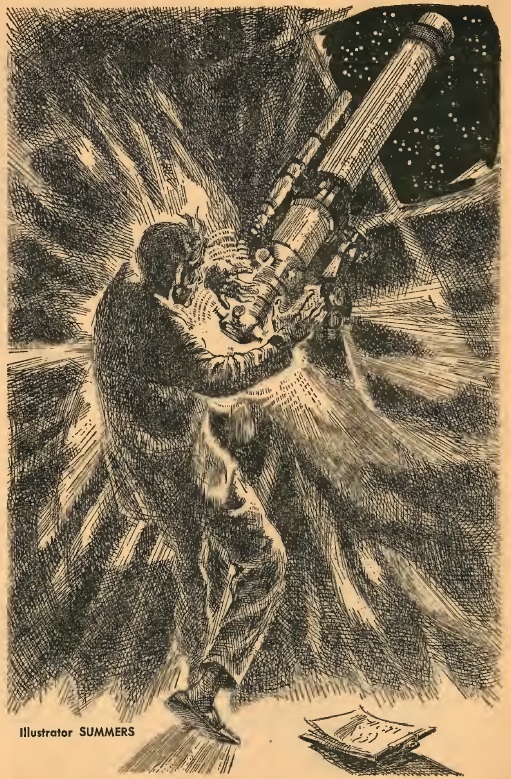[if you’re new to the Journey, read this to see what we’re all about!]

by Mark Yon
The Big Freeze of December has continued into January. As I type this, towards the end of the month, things have begun to thaw, especially in the south of Britain, but there are still areas unchanged. It is a surprise to see even London’s Trafalgar Square frozen.

Here in the colder Midlands, the melting is not as advanced, yet we seem to have settled into a routine. I’m just pleased that the postal services have not been too affected and this month’s copy of New Worlds has managed to arrive here.

I Like It Here, by Mr. James White
This month’s guest editorial is from a New Worlds regular, who I know you will recognise in the US for his Sector General stories. With characteristic humour he adeptly summarises the contradiction in the current argument in s-f, between writers who don’t care what they write (as long as it sells) and writers who do not produce the sort of s-f that readers want. In typically droll manner, the many trials and tribulations of the modern writer is recognised in this editorial, determined to amuse. For a slightly less amusing consequence of this we also have Mr. John Carnell’s ‘View from the Hill’ at the end of this issue, of which more later.
To the stories. There’s a couple about alien species this month:
Twice Bitten, by Mr. Donald Malcolm
The first of these is Mr. Malcolm’s tale of first contact with an alien lifeform which Planetary Ecologist Paul Janeba has to tame before colonisation can occur. There’s a nice touch with the unusual aliens, but the story’s not a patch on Murray Leinster’s Colonial Survey stories. There’s also a strange military interlude in this story that tries very hard to evoke Mr. Robert Heinlein, but seems clumsy and irrelevant here. Two out of five.
Live Test, by Mr. Peter Vaughan
I found that this story of a misfunctioning spaceship built up a sense of peril nicely at the start but the whole story hangs on a situation that is so improbable that it ruined the story for me. The circumstances just wouldn’t happen in the first place, and I felt that there were easier ways of obtaining the result required that were just as effective as the method employed here. Two out of five.
Pet Name for a World, by Mr. Gordon Walters
Another New Worlds newcomer (or at least one unknown to me), Mr. Walters gives us the second of this month’s alien stories. Of the two, this is the stronger. On planet Angstrom Veema, our nameless and reluctant toxin specialist is sent to rid the planet of a vampyrric resident, so that a colony can survive. It’s a little wobbly in its logic (what would the effect of the removal of this key carnivore on the rest of the ecosystem be? Has nobody in the future read Rachel Carson’s Silent Spring?) and the solution to the problem is rather extreme, but I appreciated the author’s attempt to write an unusual take on a tired concept. Three out of five points.
Till Life Do Us Part, by Mr. Robert Presslie
An author appearing with regularity recently, Mr. Presslie’s latest short story is one of his best to date (although that may not be saying much, admittedly.) I liked the idea of this story, though, that in a future where people live extended lifespans the rich live in the Earth’s oceans or in other people’s bodies as ‘deathmembers’ or ‘liferenters’, whilst the majority struggle to eke an existence. It doesn’t quite hold together in places, though, and the ending is resolved far too quickly. Three out of five.
Dawn’s Left Hand, by Mr Lan Wright
After last month’s debut, the second part of this serial begins after the cliff-hanger ending of last month, where our ‘hero’ Martin Regan has become Manuel Cabera, son of a gangster. This middle part of the trilogy involves Regan trying to gain control of a power struggle situation and as a result there’s a big reveal (that’s not that revealing, to be honest) and a lot of running about. Once beyond this, when it boils down to it, it’s a typical middle part of a story, still lacking logic. Still two out of five.
Survey Report of 1962, by Mr John Carnell
Although this is not a story, it is an important summary that reflects how things are and perhaps where things are going to be in the future in British s-f. To sum up, it was a good year on a broad scale, but whereas the US market has been ‘more of the same’, there has been a noticeable growth in markets and sales of hardbacks and paperbacks in Europe. The present debates we have been seeing over the last few months (and indeed in this month’s Guest Editorial), are because s-f is being increasingly changed by outside influences. Whether this is a reflection of s-f moving to the mainstream, or the mainstream becoming more accommodating of s-f, I guess has yet to be seen. Signs of greater exposure in film and television suggest that these may be the places we will notice s-f in 1963.

In summary, compared with last month’s issue of New Worlds, this one is the weaker. I suspect that when it comes around to December and I’m considering the stories I’ve liked in 1963, there’s little here I will remember. Hopefully it will be better next month.
[P.S. If you registered for WorldCon this year, please consider nominating Galactic Journey for the "Best Fanzine" Hugo. Check your mail for instructions…]






